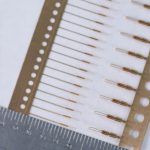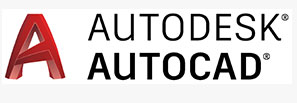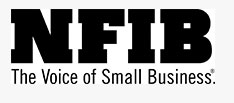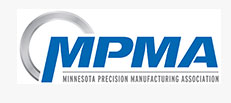 Precision manufacturing is one of the biggest advances in recent history.
Precision manufacturing is one of the biggest advances in recent history.
Unlike some of the other trends in the industry, precision manufacturing has the potential to revolutionize how businesses operate, reducing costs while simultaneously increasing efficiency, tightening tolerances, and providing a more reliable method of manufacturing.
As more companies discover the benefits of precision manufacturing, it could become even more prominent than it already is. The technology has been transformative in many industries, including automotive, aerospace, and medicine.
What makes precision manufacturing so effective? What are the benefits of it?
Let’s examine some of the biggest advantages that the technology can offer when developing products in order to answer these questions and understand how it can be used.
Precision that is second to none
Precision manufacturing technology can produce parts and products with an accuracy far beyond what is possible with most other methods.
Because of precision manufacturing, entire industries have advanced, as companies are now able to produce parts with very tight tolerances in fields where even the slightest deviation was not tolerated.
You still need a method of producing your products that can provide you with the exact same copy of a design every single time, even if you don’t manufacture products where absolute precision is critical.
Furthermore, the technology has excellent automation options, utilizing CNC machining technology to eliminate the need for manual labor and minimize the risk of human error, which further enhances the accuracy and precision of the method.
Furthermore, CNC machines can also be used to produce large parts, which further expands the capabilities and applications of this technology.
Fast Turnaround
Due to the advanced software capabilities used in modern precision manufacturing, turnaround times have been shortened, as the combination of software and machining solutions have simplified the process of turning a design into a finished product.
With advanced design and manufacturing tools, manual work can be reduced dramatically. This means that the design process that used to take months now can be completed in months or even weeks, radically changing how manufacturers approach production and plan the launch of their products.
The automated processes utilize CNC machining technology to perform repetitive tasks with impeccable accuracy, producing parts with tight tolerances and ensuring that the products remain consistent even in large runs.
With precision manufacturing, you can quickly produce large quantities of products, since the machines require little supervision, can reproduce the same model over and over again, and can work automatically round the clock.
Lower Costs
The process of manufacturing parts with tight tolerances is expensive. This is particularly true for industries where parts must be produced with impeccable precision.
In recent years, advances in precision manufacturing technology have enabled companies to obtain better results for the same or even lower price than they would have had to pay ten or twenty years ago.
CNC machining technology has a range of advantages that reduce costs at various stages of a project.
As a result of advances in the technology itself, but also because it is now possible to quickly produce prototypes that can be tested and tweaked as the findings require, using advanced software makes designing the part and ensuring its structural integrity much easier.
Additionally, precision manufacturing requires less manual labor, so fewer people have to be involved in the project, and repetitive tasks can be automated on a large scale. As a result, precision manufacturing companies are able to offer their clients more competitive prices and provide more flexibility to their customers, increasing the popularity of this type of manufacturing.
Likewise, automation reduces the chances of human error, which means fewer costly mistakes that could inflate budgets with additional costs.
In addition, CNC machining itself produces very little waste. Therefore, material requirements are reduced, passing on the savings to the customers, as well as allowing more expensive materials to be used in the manufacturing process.
Easier Testing & Prototyping
A successful product launch requires testing. It is very likely that some changes and tweaks will be needed to ensure consistent performance and durability, regardless of how well-crafted the initial design may be.
Unfortunately, with certain production methods, that can be a hassle. Prototype production can take a long time, limit the types of materials that can be used, and jack up costs to a point where it becomes unpractical.
Fortunately, none of these problems occur when precision manufacturing is used.
Flexible product development options allow companies to explore various niches and options for their products, quickly producing prototypes using a range of materials and allowing them to test their performance without limitations.
One of the biggest selling points of CNC machining technology is its rapid prototyping capabilities, as it not only has low tooling costs, which allows for greater flexibility, but also significantly reduces waiting times.
By using the necessary materials, including metal prototypes, the prototype can be fully functional, instead of being a mere concept. Therefore, if the tests prove the product is viable, then full-scale production can begin almost immediately, saving the company time and allowing it to take advantage of the favorable circumstances as soon as possible.
You can imagine that a fully functional prototype can make for a more persuasive pitch to your investors or stakeholders than a mere concept that serves little more than as a placeholder.





